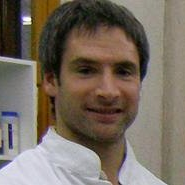Dental Pulp Stem Cells and Their Applications in Tissue Engineering, Regeneration and Clinical Therapy
A special issue of Bioengineering (ISSN 2306-5354).
Deadline for manuscript submissions: closed (30 June 2021) | Viewed by 977
Special Issue Editors
Interests: dental pulp stem cells; biomaterials; stem cell therapy; neurobiology; tissue engineering; cell signaling
Special Issues, Collections and Topics in MDPI journals
Special Issues, Collections and Topics in MDPI journals
Special Issue Information
Dear Colleagues,
The human dental pulp has revealed itself as a unique reservoir of adult stem cells with an outstanding quality and applicability potential for tissue engineering and cell therapy in a variety of clinical contexts, including regenerative dentistry and reaching far beyond. Dental pulp stem cells (DPSCs) have the capacity to differentiate to many different mesenchymal and non-mesenchymal cell lineages, including neural and vascular cells. The differentiation commitment of DPSCs largely depends on different variables such as the culture system of choice (2D vs. 3D), the soluble factors present in the cell culture medium, as well as the physical characteristics of the used scaffold substrate, among others. DPSC behavior also shows a substantial plasticity in response to extracellular signaling, as well as metabolic and epigenetic cues, which can also critically modify their cellular response both in vitro and in vivo. In addition, the immunomodulatory properties of DPSCs make them very attractive candidates to be used either as live cell grafts or at the level of their extracellular vesicles and/or secretome, to treat diverse diseases and conditions where there is a pathological activation of the immune system. Furthermore, DPSCs have a markedly non-tumorigenic phenotype, and this is increasingly attracting the interest of cancer researchers seeking new therapeutic strategies to treat deadly tumors.
This Special Issue welcomes cutting-edge original research papers and comprehensive reviews dealing with DPSC biology and their current and potential applications on clinical therapy and tissue engineering and regeneration, with an emphasis on the expansion of the limits of knowledge of the DPSC field.
Prof. Gaskon Ibarretxe Bilbao
Dr. José Ramón Pineda
Guest Editors
Manuscript Submission Information
Manuscripts should be submitted online at www.mdpi.com by registering and logging in to this website. Once you are registered, click here to go to the submission form. Manuscripts can be submitted until the deadline. All submissions that pass pre-check are peer-reviewed. Accepted papers will be published continuously in the journal (as soon as accepted) and will be listed together on the special issue website. Research articles, review articles as well as short communications are invited. For planned papers, a title and short abstract (about 250 words) can be sent to the Editorial Office for assessment.
Submitted manuscripts should not have been published previously, nor be under consideration for publication elsewhere (except conference proceedings papers). All manuscripts are thoroughly refereed through a single-blind peer-review process. A guide for authors and other relevant information for submission of manuscripts is available on the Instructions for Authors page. Bioengineering is an international peer-reviewed open access monthly journal published by MDPI.
Please visit the Instructions for Authors page before submitting a manuscript. The Article Processing Charge (APC) for publication in this open access journal is 2700 CHF (Swiss Francs). Submitted papers should be well formatted and use good English. Authors may use MDPI's English editing service prior to publication or during author revisions.
Keywords
- Dental pulp stem cells
- Cell differentiation
- Tissue Engineering
- Biomaterials
- Scaffolds
- Cell therapy
- Tissue regeneration
- Immune-regulation
- Extracellular vesicles
- Oncogenesis
Benefits of Publishing in a Special Issue
- Ease of navigation: Grouping papers by topic helps scholars navigate broad scope journals more efficiently.
- Greater discoverability: Special Issues support the reach and impact of scientific research. Articles in Special Issues are more discoverable and cited more frequently.
- Expansion of research network: Special Issues facilitate connections among authors, fostering scientific collaborations.
- External promotion: Articles in Special Issues are often promoted through the journal's social media, increasing their visibility.
- Reprint: MDPI Books provides the opportunity to republish successful Special Issues in book format, both online and in print.
Further information on MDPI's Special Issue policies can be found here.







